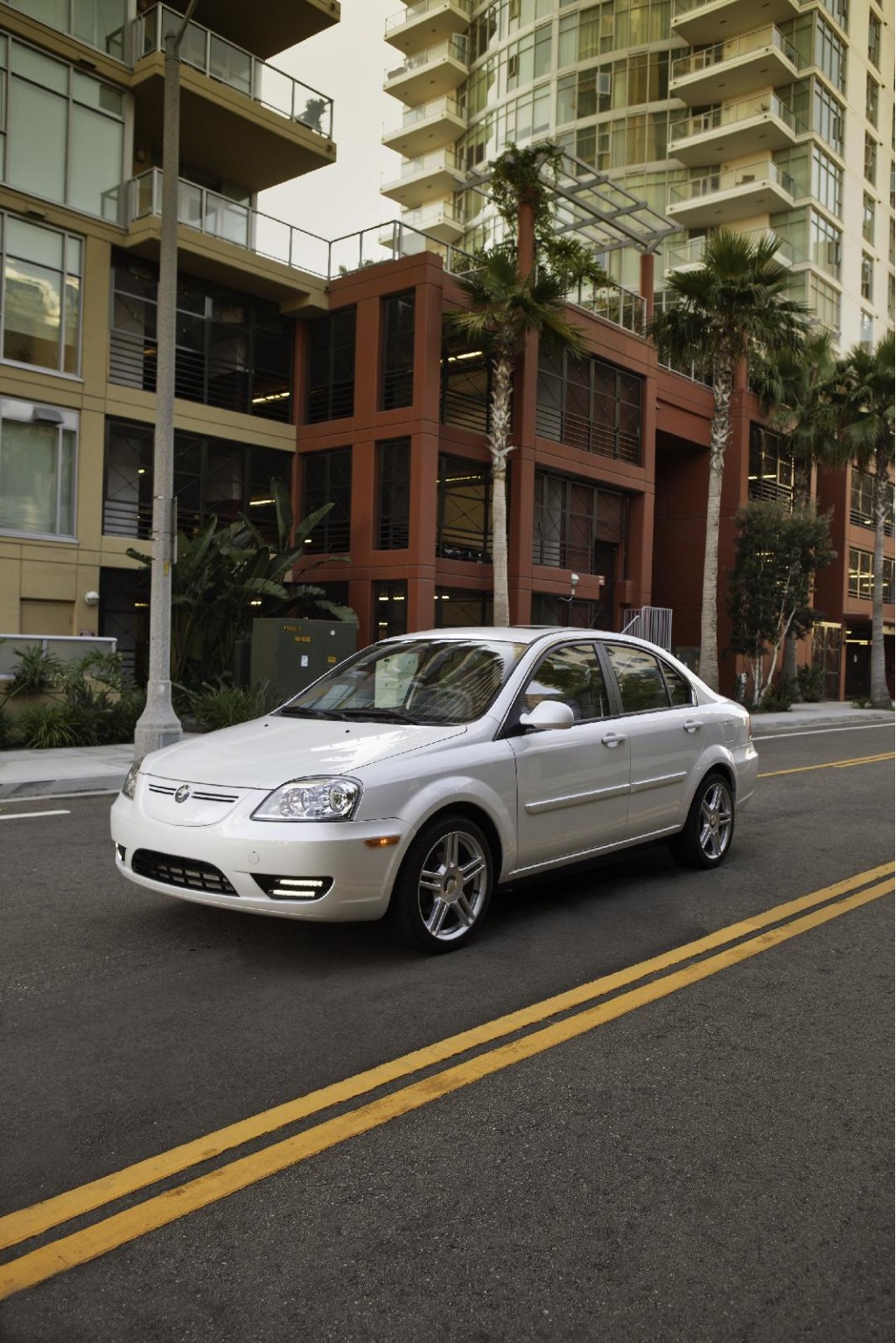Building any car is tough. Building an electric car is tougher.
Automakers must devote time, skill, technology and financial investment to designing, engineering, and cutting costs for what is still far from a mainstream drivetrain.
Even Nissan, whose Leaf won GreenCarReports’ Best Car To Buy 2011, has pushed back delivery dates for the Leaf.
But a small Californian firm yesterday pushed its own compact all-electric car launch back from next month to sometime in the third quarter of 2011. And we think that puts them in a tough and scary position.

2011 Coda Sedan electric car, New York City, September 2010
The announcment from Coda Automotive that its 2011 Coda Sedan won't hit the streets until late 2011 comes a week after both the firm's senior vice president of sales & marketing and the CEO resigned.
CODA has said little about the reasons behind this, except that it wishes to make sure the quality of its car is as high as possible.
We can’t say whether that may indicate problems with components, issues with the performance of prototypes, or just the management shuffle. But broken promises are certainly not good for reputation.
What’s the upshot? We won’t be seeing CODA sedans on the road any time soon, at least not in private hands. That’s a shame.
But we have to be honest: Over the past few months, we’ve become increasingly skeptical that CODA could deliver on its promise to bring the 2011 Sedan to market by the start of the holiday season. Why? Let us count the reasons.
(1) Very few anecdotal order stories
The 2011 Nissan Leaf and 2011 Chevrolet Volt both have stuffed order books. We regularly hear from, and about, buyers on the waiting list for one or other. But we have yet to hear from a single reader, advocate, or potential customer of CODA.
Yes, we know Enterprise Rental have ordered some, as have other fleet managers. But ouside of this, where are the hordes of eager retail buyers waiting for their car?
Anecdotal tales of pre-launch excitement, orders and test drives are often a great way of gauging the success of a car. So we're a little perturbed. Just how many retail orders are there? Why don't we hear anyone who has put up the $499 deposit for a CODA Sedan?
If that's you, let us know. We’d love to set the record straight.
(2) Management turnover
No, it's not uncommon for a company to change executives when switching from development to product launch. But two such senior executives leaving within days of one another surely indicates that something is not well.
What’s more, the resignations came just days before the 2010 Los Angele Auto Show, an important event for any automaker and particularly so for Coda, which is hosting a cocktail party and offering interviews with executives.

2011 Coda Sedan, final production version
(3) Many press releases, no test drives
CODA has put out regular press releases, providing details to the media of when it planned to launch the 2011 CODA Sedan. We even have an impressive list of fleet purchases the company has booked.
But to date, CODA has not offered the media test drives--whereas the 2011 Nissan Leaf has now been widely reviewed and driven by most of the major national and international automotive media.
That’s surprising for any company that's about to launch an automobile, and it led us to suspect a while back that the December launch target would be impossible to meet.

2011 Coda Sedan electric car, New York City, September 2010
(4) Higher price, but lower support?
Let’s get one thing straight: CODA is not a mainstream automaker. It has no model currently on the market; the 2011 Sedan is its first car.
Unlike Nissan with its Leaf, it has no franchised dealers, no company-run showrooms, and no nationwide support infrastructure for when things go wrong.
At fully $14,000 more than Nissan’s 2011 Leaf, CODA is asking its first customers to take an expensive gamble that a previously unknown automaker can provide the level of service and support that is taken for granted with the purchase of any car.
While Tesla Motors, another non-mainstream electric car manufacturer, has done pretty well with its company-owned showrooms and growing International support, it sells a $109,000 sports car. When you’ve paid six figures for a car, the service comes to you.

Miles Electric Vehicle
(5) Further delays mean a closing market window
In 2007, when the then-Miles XS500 was announced, it had an initial price of $30,000. Then it was meant to be in showrooms by the end of 2008, though the cost had increased to $60,000.
In 2008, we heard that the Hafei Saibao EV (the car we know now as the CODA Sedan), had passed an Insurance Institute for Highway Safety (IIHS) safety test. At that time, the car was still expected by the end of 2008.
Fast forward two years, and we’re waiting expectantly for the car. Yes, delays are normal in the automotive world, but we can’t help but think the delays facing Nissan's rollout of its Leaf are not the same ones facing CODA.
Delaying the launch for another nine months loses Coda its early-mover advantage, since about a dozen electric cars will be on the market by 2012.
And we’re not sure that small or startup auto firms can beat the big guys without some significant advantage in schedule, price, or technology. Can anyone make the case that Coda has even one of those?













